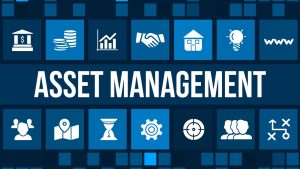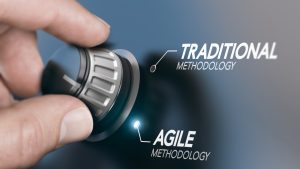According to Statista, the healthcare industry in Singapore is one of the biggest industries that impacts their economy with a revenue of US$66.09m in 2023. When we say the healthcare industry, it does not mean it is limited to the traditional ways of serving patients, but it expands its wings to the digitally revolutionised world now. Due to technological advancements, we can see the healthcare industry is facing an extreme transition. That is where the new technology which is known as ‘Enterprise Resource Planning’ or in short ERP comes into play. This solution takes control of each aspect of the healthcare organisations and provides the best outcome for all the parties.
In this article, we are exploring the healthcare ERP system and how it impacts the health organisations in Singapore. Also, we will discuss the main types of ERP and the key modules and their benefits throughout this article.
What is ‘ERP’?

- Financials
- Supply chain
- Operations
- Commerce
- Reporting
- Manufacturing
- Human resources functions etc.
Three Types of ERP Systems in the Healthcare Industry

On-Premise ERP
For on-premise software to function, the healthcare organisations must have it installed and maintained internally, and internal IT personnel must be present. Employees can access the data that is kept on-site without a network connection to the Internet.
The company owns the servers, and an IT department is in charge of maintaining and updating the software. As having a licence for the program means having control over every module and component, large enterprises might take into consideration this style of ERP software setup.
Cloud ERP
A cloud-based ERP system saves all of a healthcare organisation’s business data in one area and enables enterprises to monitor all of their operations from any location, using any device. Due to real-time information changes, cloud-based ERP software could make handling frequent updates easier.
By doing this the organisations decrease the possibility of downtime. Also, healthcare companies can make more utilisation of the system’s features that are essential for staying competitive. Cloud-based ERP solutions provide a centralised deployment approach that ensures all data is preserved in the cloud. As an extra reward, the system keeps track of users’ sign-in and sign-out times, making easy tracking possible and bolstering security.
Hybrid ERP
This is a combination of on-premise ERP and cloud-based ERP. On-premises and cloud-based ERP are combined to form a hybrid ERP. It excellently satisfies the requirements of businesses that operate in a particular area.
The complexity of hybrid ERP determines how much healthcare maintenance will cost. Usually, companies use this system to integrate cloud-based modules into their current on-premise software as their operations expand.
The Integrations of Healthcare ERP

Business Intelligence
This helps to solve issues related to hospital data collection, analysis, and report delivery. When seamlessly integrating data from various departments and sources, it enables healthcare professionals to make informed decisions swiftly. Advanced analytics and data visualisation tools, identify trends, improve resource allocation, and enhance patient care.
Not limited to that, it ensures compliance with regulatory requirements, streamlines financial operations, and optimises inventory management. The Business Intelligence tools utilised in ERP empowers healthcare organisations to deliver high-quality care while maintaining operational excellence.
Electronic Health Record
Integration of ERP with Electronic Health Records enhances operational efficiency, offering comprehensive control over the hospital’s supply chain. It enables precise analysis and prediction of patient and supplier needs. This integration not only centralises critical health data but also facilitates seamless data flow, improving patient care and resource management.
Ultimately, the EHR module empowers healthcare organisations to deliver better care, optimise their supply chain, and enhance overall operational effectiveness.
Financial Management
This component plays a pivotal role in analysing and tracking the financial data of the company. It enables healthcare institutions to exercise precise control over their budgets, monitor expenditures, and efficiently manage received payments. By providing real-time insights into financial transactions and streamlining accounting processes, it enhances fiscal transparency and compliance with regulatory standards.
Also, the Financial Management module optimises resource allocation, identifies cost-saving opportunities, and reduces financial risks. It facilitates accurate financial reporting, aiding in strategic decision-making and ensuring the financial health of the organisation. In essence, this module empowers healthcare organisations to maintain fiscal discipline, allocate resources wisely, and navigate the complex financial landscape of the healthcare industry.
Human Resources
This module efficiently manages employee-related tasks, including enrollment, offboarding, timesheets, and benefits administration. Automating calculations for payments and benefits significantly reduces the potential for human error and minimises the time spent on repetitive and monotonous tasks.
This not only enhances the accuracy and efficiency of HR processes but also ensures that employees are compensated correctly and receive timely benefits. Ultimately, the HR module empowers healthcare organisations to optimise their workforce management, maintain compliance, and focus on delivering quality patient care.
Inventory Management
This module keeps track of all the inventory of the hospital and automatically updates the system, enabling employees to promptly identify when essential medicines or materials are out of stock. This real-time visibility helps in preventing critical shortages, ensuring that patient care is never compromised.
Plus, it streamlines procurement processes, reduces excess stock, and minimises wastage, thus saving costs and valuable resources. Also, it enhances compliance by ensuring that medical supplies meet regulatory standards. You can see the Inventory Management module empowers healthcare organisations to maintain efficient operations, reduce costs, and ultimately deliver better patient care.
Patient Relationships Management
This CRM module efficiently stores and organises patient data, ensuring easy access and management of all pertinent information, encompassing health records and payments. Since it helps centralise and categorise this data, healthcare providers can deliver more personalised care, streamline administrative tasks, and improve patient experiences.
The PRM module not only enhances data security and accuracy but also enables healthcare organisations to forge stronger relationships with their patients, leading to improved overall efficiency and quality of care delivery.
The Key Benefits of ERP Software in Healthcare Management

Improved Patient Satisfaction
Since you have gone through the applications and modules of ERP, you know healthcare ERP software has become an indispensable tool for hospitals and medical facilities. It simplifies the creation and management of comprehensive patient databases, encompassing a wide range of crucial information, such as medical reports, dietary preferences, patient records, appointment schedules, and much more. This centralised data repository enhances accessibility for both medical staff and patients, facilitating efficient and coordinated care.
It often incorporates advanced technologies like artificial intelligence (AI) and automation. These functionalities empower doctors and healthcare professionals to harness the power of data-driven insights. They can easily leverage AI algorithms to analyse patient data, generate predictive insights, and make informed decisions regarding treatment plans, diagnosis, and care protocols. This not only optimises medical processes but also enhances the overall quality and precision of healthcare delivery, ultimately benefiting patients and healthcare providers alike.
Reducing Costs
Similar to other businesses, hospitals benefit from ERP systems by effectively lowering operational and labour expenses. They enable meticulous data tracking, empowering hospital administrators to pinpoint inefficiencies, optimise staff allocation, and trim unnecessary expenditures. This data-driven approach enhances resource management, ultimately saving costs while maintaining or even improving patient care quality.
The power of it does not end here, you can see the HR department leverages ERPs for seamless payroll management, relying on automated calendars and reporting tools that streamline payroll processes, reduce administrative burdens, and ensure accuracy in compensation, thus further contributing to cost-efficiency in healthcare operations.
Accelerated Financial Planning
These systems are invaluable tools for hospital accounting and finance professionals as they streamline various financial aspects. These systems facilitate the efficient management of bills, payroll processing, tax calculations, expense tracking, inventory schedules, and monitoring medical equipment costs. When centralising and automating these critical financial functions, medical ERP systems contribute to the creation of a robust financial framework for hospitals.
This, in turn, helps in comprehensive financial planning, allowing healthcare institutions to chart their financial course effectively. Plus, it enhances profitability management by providing real-time insights into revenue generation and expenditure, enabling hospitals to make informed financial decisions and ensure sustained financial health.
Record and Planning Automation
A fully automated ERP platform offers doctors and medical professionals a seamless and efficient way to oversee critical aspects of patient care. It simplifies appointment scheduling, enabling practitioners to manage their schedules effortlessly. Also, it centralises patient records, ensuring quick access to vital medical information, improving diagnosis accuracy, and enhancing patient care.
The system also streamlines prescription management, making it easier for healthcare providers to generate, update, and track prescriptions. By automating these essential tasks, healthcare professionals can focus more on patient care, reduce administrative burdens, and enhance the overall quality and efficiency of healthcare delivery.
Clearing Road to Better Business Management with New Technology

Since you have gone through this whole article you must have understood that no industry can stay strong when not getting updated with the new-era technology. However, the most important thing to keep in mind is that not every software solution is not suitable for every organisation. Aligning the requirements through conducting strong research before purchasing tools guarantees the desired results.






